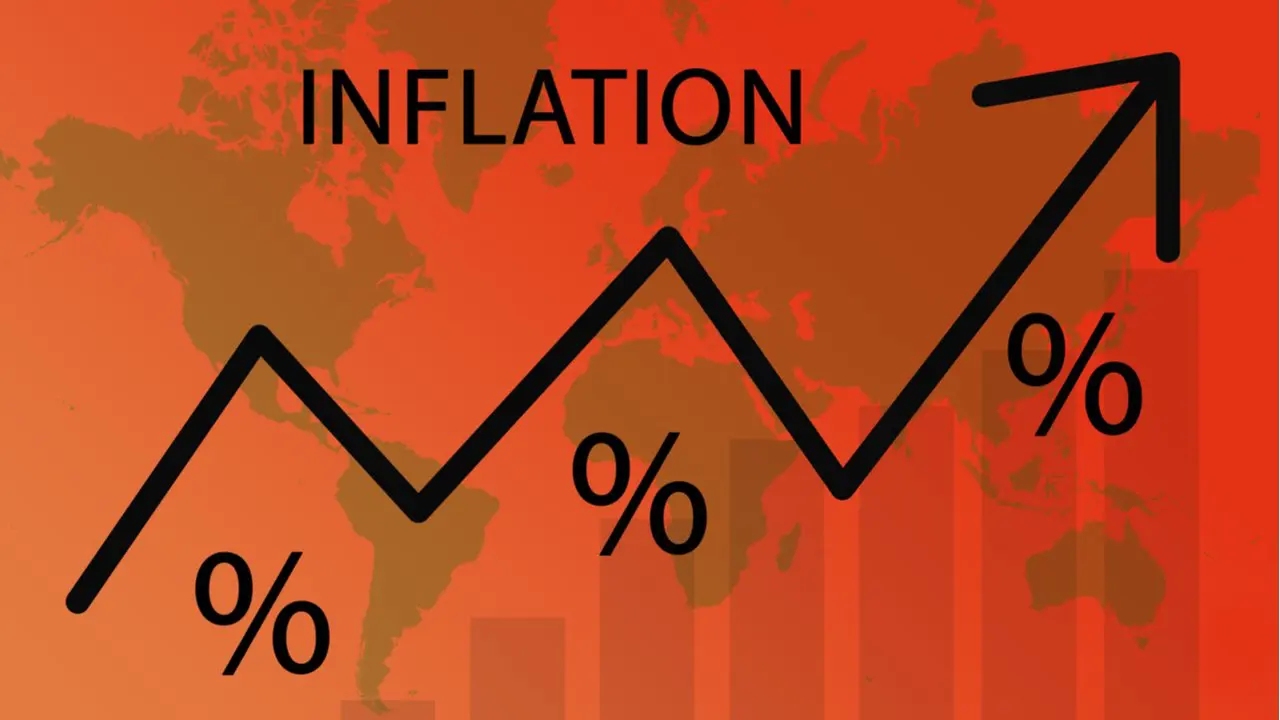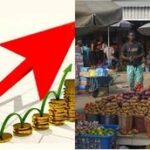Rising Inflation Puts Nigerian Small Businesses on the Brink
Small business owners across Nigeria are grappling with unprecedented challenges as rising inflation continues to batter the economy. The effects of the economic downturn are far-reaching, with many entrepreneurs facing significant financial strain, dwindling customer bases, and a bleak outlook for the future.
Boutique Owner’s Struggles Due To Inflation
For Mrs. Ada, who owns a boutique in the bustling market area of Yaba, Lagos, the story is one of heartbreak and frustration. Once thriving, her boutique now struggles to attract customers. The glamorous dresses that used to draw crowds are now gathering dust.
Join our WhatsApp Channel“People used to come in regularly, admiring the new collections and making purchases. But now, they simply walk by, unable to afford what they once bought without a second thought,” Ada laments.
She explains how the prices of her dresses have more than doubled in just a year. “A gown that was N5,000 last year now sells for N10,000 or more. The cost of materials has risen, and so has the rent,” she says. To cope, Ada has reluctantly offered credit to her loyal customers, but even that hasn’t stemmed the tide of falling sales.
“The truth is, people can’t spend on fashion like they used to,” Ada admits. “They’re more concerned about putting food on the table.”
The Cost of Living Crisis for Appliance Retailers
Mr. Emeka, who runs a domestic appliance store in Yaba, echoes Ada’s concerns. “It’s been incredibly tough,” he says, shaking his head. “People are no longer buying the things they used to. They’re holding on to their money, only spending on essentials.”
Emeka explains that the prices of household appliances have tripled in the last year. “A blender that was N3,000 last year now costs N8,000. Customers come in, ask for prices, and then leave without buying anything,” he says. “Even a simple item like a mop, which sold for N900, is now N1,800.”
The situation has led to a steep decline in sales. “We used to make N20,000 to N30,000 a day. Now, we’re lucky if we make N5,000,” Emeka reveals. “The rent is going up, but our income is going down. It’s a nightmare.”
READ ALSO: Monthly Rent Payment Proposed To Tackle Rising Inflation In Nigeria
Provision Store Owner Faces a Dire Situation
Mrs. Fatima, who owns a provision store in Ajao estate, Lagos describes a similar struggle. The cost of everyday items has surged, and her customers are feeling the pinch.
“Last year, a carton of noodles cost N5,000. Now, it’s over N7,500,” Fatima says. “The price of beans has more than doubled. People are buying less, and many are asking for credit.”
She also faces the pressure of rising rent. “My rent has gone up from N180,000 to N240,000 in just two years. How are we supposed to survive?” Fatima asks, frustration evident in her voice.
To attract more customers, Fatima has diversified her offerings by adding alcoholic beverages to her inventory. However, this has not been enough to offset the rising costs. “Even with the extra products, we’re not making enough to cover our expenses,” she says. “The small profit we make is gone by the time we pay our bills.”
Hairdresser Sees Customer Decline
Mrs. Sade, a hairdresser in Ajah, has seen a significant drop in her clientele. “Weekends used to be our busiest time, but now, we barely see any customers,” she explains. The reduction in customers has forced her to close her shop on Saturdays, a move she never imagined making.
“Before, we could rely on steady business on Saturdays. Now, it’s just not worth the cost of keeping the shop open,” Sade says. She notes that even basic services have become too expensive for many customers. “A hair treatment that used to cost N3,000 now costs N6,000. People just don’t have the money.”
Laundry Service Battles Rising Costs
A Laundry Service, operated by Mr. Ibrahim in Yaba, is also feeling the impact of inflation. “We used to get about 10 customers a day, but now it’s down to five,” Ibrahim says. The cost of materials like detergent and packaging has increased, forcing him to raise his prices.
“Cleaning a suit used to cost N700. Now, it’s N1,500,” Ibrahim explains. “People are choosing to wash their clothes at home instead of coming to us. It’s killing our business.”
The stories of Ada, Emeka, Fatima, Sade, and Ibrahim paint a bleak picture of the impact of inflation on small businesses in Nigeria. As prices continue to rise, these entrepreneurs face an uphill battle to keep their businesses afloat.
The Broader Impact of Inflation
The experiences of these small business owners are not isolated incidents. Across Nigeria, the effects of inflation are being felt by consumers and businesses alike. The Naira’s depreciation against the dollar has driven up the cost of imported goods, while the rising cost of fuel has increased transportation expenses.
Economist Dr. Olumide Olaniyan explains, “Inflation is eroding purchasing power at an alarming rate. When prices rise faster than wages, people have less disposable income, and this impacts every sector of the economy.”
He adds, “Small businesses are particularly vulnerable because they operate on thin margins. When costs go up and sales go down, many are forced to close their doors.”
The inflation rate in Nigeria reached 33.4% in July 2024, the highest in nearly two decades. The government has implemented various measures to curb inflation, including raising interest rates and reducing fuel subsidies, but the situation remains dire.
Looking Ahead: What Can Be Done?
As small businesses struggle to survive, there is a growing call for more robust government intervention. “We need policies that will help stabilize the Naira and bring down the cost of living,” says Mr. Emeka. “Otherwise, many of us won’t make it through the year.”
Ada agrees, noting that support for small businesses is crucial. “If the government can provide loans or grants, it would go a long way in helping us stay afloat,” she says.
For now, these entrepreneurs are left to navigate the harsh economic landscape on their own, hoping for a break in the storm. The resilience of Nigeria’s small business sector is being tested like never before, and the road ahead remains uncertain.
As the country grapples with rising inflation, the fate of these small businesses hangs in the balance. Will they survive the economic onslaught, or will they become casualties of a worsening financial crisis? Only time will tell.
Emmanuel Ochayi is a journalist. He is a graduate of the University of Lagos, School of first choice and the nations pride. Emmanuel is keen on exploring writing angles in different areas, including Business, climate change, politics, Education, and others.
- Emmanuel Ochayihttps://www.primebusiness.africa/author/ochayi/
- Emmanuel Ochayihttps://www.primebusiness.africa/author/ochayi/
- Emmanuel Ochayihttps://www.primebusiness.africa/author/ochayi/
- Emmanuel Ochayihttps://www.primebusiness.africa/author/ochayi/


















Follow Us